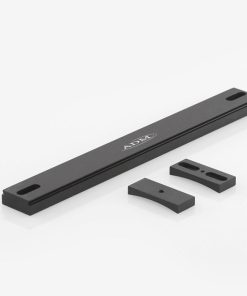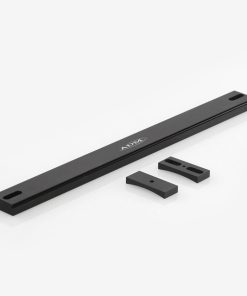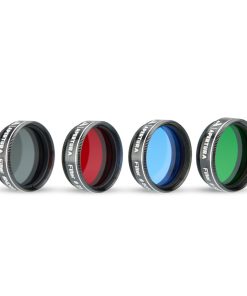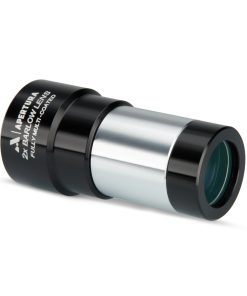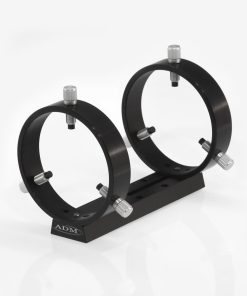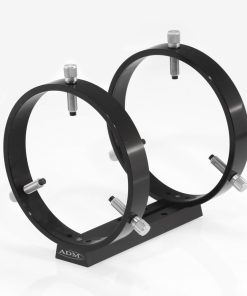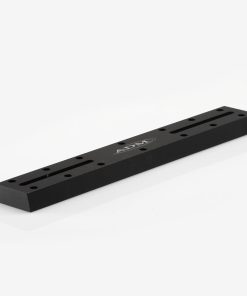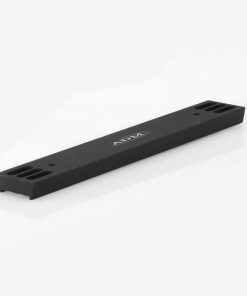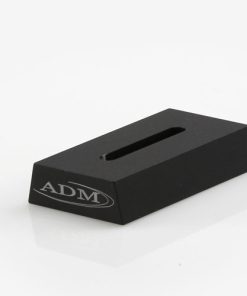Optolong Clear Focusing Filter – 1.25″ Mounted – CFF-125 Optolong
$ 24,00 $ 14,40
Optolong Clear Focusing Filter – 1.25”
This 1.25″ Clear Focusing Filter enables you to conveniently focus on your subject prior to imaging. The filter is optimized with a 98.5% transmission of the visible spectrum region of 420-680nm. This is particularly useful when astro-imaging through narrowband filters because the subject is often so dim that focusing is difficult. The Optolong Clear Filter also makes a good dust shield.
The Optolong 1.25” Clear Focusing Filter is made Schott glass that has been multi-coated with ion-assisted deposition technology to ensure scratch resistance and stability on the central wavelength, or CWL. The filter cell is made of lightweight, strong metal and is CNC machined, sand-blasted, black anodized, and then laser engraved. The result is a super thin filter cell that will produce a clear aperture of 45mm.
Quality Filter Materials:
- Schott B260 substrate material from Germany, 2.0mm thick
- CNC machined and black anodized aero-metal filter cell that is ultra-thin to provide largest clear aperture; Laser-engraved to prevent fading
- Multiple layers of anti-reflection non-cementing coatings applied via electron-beam gun evaporation with Ion-assisted deposition
Optolong Filter Manufacturing Processes and Parameters
- Filter substrate is fine-optically polished to 1/4 wave and <30 parallelism over both surfaces
- Surface quality, according to MIL-O-13830, is 60/40
- 98.5% transmission at visible spectral range 420 – 680nm
- High-value transmission of pass-band and optical density of off-band is assured through Optolong’s planetary rotation system, a homogeneous and precise coating procedure
- Thin metal cells have a clear aperture of 26mm for 1.25” filters
- Each filter comes with a plastic case with high-pressure EVA case lining
About Optolong
Optolong is the Astronomy Filters division of Yulong Optics, an optical filter design, and processing company out of Kunming, China that has provided filters for over 700 optical companies since 1999. All Optolong filters pass European Union RoHS requirements and have been certified by TUV Rheinland and Bureau Veritas.
Quick Shipping and Professional Packaging
Due to our longstanding partnership with UPS FedEx DHL as well as other major international carriers, we are able to provide various shipping options. Our warehouse personnel are well trained and will be able to pack your goods in accordance with the exact and precise specifications. Your goods are thoroughly checked and securely secured prior to shipment. Everyday we deliver hundreds of packages to our customers from all over the world. Our determination to be the biggest online retailer in the world is shown by this. The warehouses are located situated in Europe in the same way as they are in the USA.
Note: Orders containing multiple items will have a separate processing period for each item.
We will carefully examine all products before they are shipped. Today, the majority of orders will be delivered within 48 hours. The delivery time will be between 3-7 working days.
Returns
We don't manage the stock at our warehouse and factory. The actual inventory may fluctuate at any time. It's possible that you may not receive your order once it's been placed.
Our policy is for 30 days. We are unable to return or exchange your purchase after 30 days since the purchase.
In order for your item to be eligible for return the item must not be opened and in the condition you received it. It must also remain in the original packaging.
Related products
Telescope Accessories
ADM Replacement Spreader Bar Knobs for Celestron Advanced VX Mount – VX-SB ADM
Telescope Accessories
ADM Accessories CGEM Counterweight Bar 22 Inches – CGEM-CW ADM
Telescope Accessories
ADM Accessories Vixen Style Dovetail for Celestron 11″ SCT – VC11 ADM
Telescope Accessories
ADM Accessories Rosette Tripod Knobs for Celestron Advanced VX Mount – VX-TKS ADM
Telescope Accessories
Telescope Accessories
ADM Mini Dovetail Bar for Celestron 9.25″ SCT – MDS-C925 ADM
Telescope Accessories
ADM Accessories CGEM Knob Upgrade – Two Orange Anodized Rosette Saddle Knobs – CGEM-SAD-OR ADM
Telescope Accessories
ADM V Series Dovetail Bar for Celestron 8″ SCT – Orange Anodized – VC8-O ADM
Telescope Accessories
Telescope Accessories
ADM Replacement Azimuth Knobs for Celestron Advanced VX Mount – VX-AZ ADM
Telescope Accessories
ADM Accessories CGEM Knob Upgrade – Altitude Adjusting Knob – CGEM-ALT-OR ADM
Telescope Accessories
ADM Tripod Knob Set for Celestron CGEM DX Mount – CGEM-DX-TKS ADM
Telescope Accessories
ADM Accessories Tripod Knob Set for Losmandy G11 & Celestron CI700 Mounts – Clear – TKS-CL ADM
Telescope Accessories
Apertura 10mm 70º Super Wide Angle Eyepiece – 1.25″ – SWA10 Apertura
Telescope Accessories
ADM Accessories Tripod Knob Set for Losmandy G11 & Celestron CI700 Mounts – Orange – TKS-OR ADM
Telescope Accessories
Apertura 1.25″ Lunar & Planetary Filter Kit #1 – LPSET1 Apertura
Telescope Accessories
ADM Accessories Mini Dovetail Bars for Mounting – MDS-M8 ADM
Telescope Accessories
ADM V Series Universal Dovetail with 125 mm Rings – VDUPR-125 ADM
Telescope Accessories
ADM Accessories CGEM Knob Upgrade – 2 Azimuth Knobs – CGEM-AZ-OR ADM
Telescope Accessories
Telescope Accessories
ADM V Series Universal Dovetail with 100 mm Rings – VDUPR-100 ADM
Telescope Accessories
ADM Mini Electronics Pier Knobs for Celestron CGE Pro Mount – CGE-PRO-MP ADM
Telescope Accessories
ADM Accessories Vixen Style Dovetail for Meade 10″ SCT – VM10 ADM
Telescope Accessories
ADM Accessories D Series Dovetail Plate for Celestron 9.25″ SCT OTA – DC925 ADM
Telescope Accessories
ADM V Series Universal Dovetail with 150 mm Rings – VDUPR-150 ADM
Telescope Accessories
ADM Accessories Vixen Style Universal Dovetail Telescope Mounting Bar – 7″ Long – VDUP7 ADM
Telescope Accessories
ADM Accessories Vixen Style Universal Dovetail Telescope Mounting Bar – 11″ Long – VDUP11 ADM
Telescope Accessories
ADM V Series Dovetail Bar for Newer Celestron 6″ SCT – VC6 ADM
Telescope Accessories
ADM Accessories Tripod Knob Set for Losmandy G11 & Celestron CI700 Mounts – Red – TKS-RE ADM
Telescope Accessories
ADM Accessories Vixen Style Universal Dovetail Telescope Mounting Bar – 3″ Long – VDUP3 ADM
Telescope Accessories
ADM Accessories Tripod Knob Set for Losmandy G11 & Celestron CI700 Mounts – Blue – TKS-BL ADM
Telescope Accessories
ADM Accessories Vixen Style Dovetail for Celestron 9.25″ SCT – VC925 ADM










